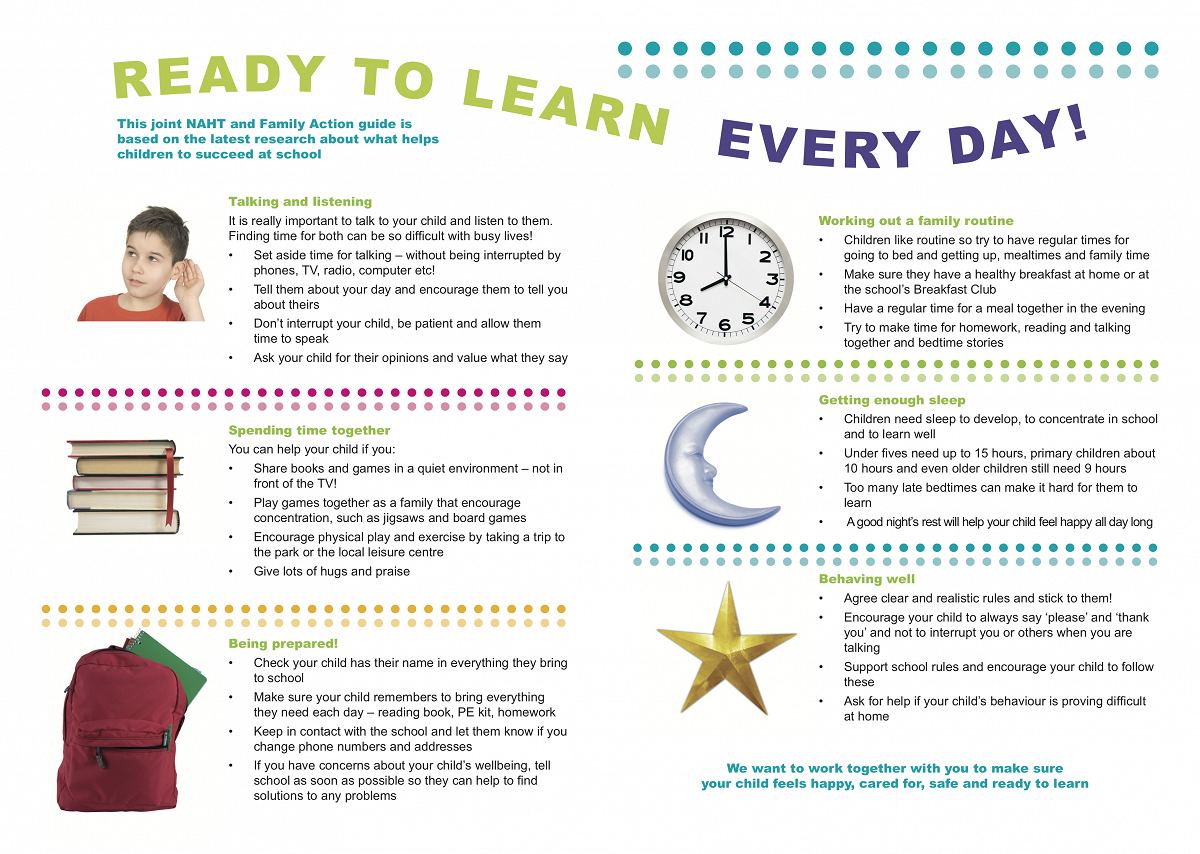Learning At Home
Parents and families can help our children to learn at home in many different ways. In this section, we make some suggestions and signpost you to websites that can help you to support learning to continue outside of school!
Newfield Home Learning Rationale
There are times when children cannot attend school but can continue to engage in learning outside of school. This may be, for example, due to occasional emergency closure; illness causing them to be at home or in hospital; or recovery from operations. Parents and families can help our children to learn at home or in hospital in many different ways. In this policy, we outline what we do to facilitate this so that we can help to support learning outside of school.
Aims:
- To offer high quality inclusive educational support for children working at home – due to periods where a child is unable to attend school, but is well enough to engage in learning.
- To create, build and retain strong links with class teachers, EHCAs and peers in class.
- To support parents with ideas, resources and activities
- To provide equipment and consumables to support learning
- To offer planning, timetabling suggestions and virtual lessons
- To provide support and work alongside parents to implement strategies and approaches for learning in the home setting
Who will support this:
- Class teachers and HLTAs, working with support from relevant DHT or AHT.
- EHCAs to support with resources – real and virtual via video – e.g.: stories, songs etc
- Families – to collaborate with school staff.
How we will achieve this:
- The approaches used will vary based on individual need.
- We can deliver live teaching (online)
- We provide a wide range of videos on our YouTube channel that all families can access at a time appropriate to them.
- We have a learning at home section on our website, with many links to resources and educational websites and activities.
Class teachers or HLTAs will work with specific children on long term, high quality home education.
All teachers and HLTAs will:
- Identify what support each family feel they need us to offer
- Identify what equipment is needed for home – e.g: laptops – in order to access learning
- Organise and resource packs for home with support from Admin and SLT
- Plan and deliver virtual sessions as required – MOVE, Sensory, Attention Autism, Story time etc
- Deliver one to one sessions to work with children and coach parents as required
- Coordinate learning activities and access to class activities with peers virtually as appropriate
- Coordinate activities with class teachers/HLTAs/Families
- Arrange simple timetables for individuals to run alongside class timetables
- Liaise with home
- Liaise with SaLT, physio etc as appropriate to support learning
- Liaise with hospital school teacher as appropriate
Family Wellbeing Coordinators will:
- Liaise with a family to offer support on a regular basis where a child is in hospital or has extended absense due to illness or operation recovery
Frequently Asked Questions
Remote teaching and study time each day - How long can I expect work set by the school to take my child each day?
Each child at Newfield has different needs and we will work with families to ensure that we support what they need and can support at home.
There may be virtual lessons that the child can access, alongside the bespoke offer from class teachers based on family preference.
Accessing remote education - How will my child access any online remote education you are providing?
We will deliver any live sessions using Microsoft TEAMS – we will support families to access this.
We will audit what families need and will ensure that we are able to loan laptops/ipads to children as required.
We will support families to access the internet.
We will provide printed worksheets where appropriate if fmailies do not have access to printers.
Engagement and feedback - What are your expectations for my child’s engagement and the support that we as parents and carers should provide at home?
We know the challenges of supporting our children to learn at home and will work with you to ensure that you are supported to access what you feel is reasonable in your circumstance.
We will not dictate to you how much time you and your child spend formally ‘learning’, as we know that for our children, learning takes many forms and aspects of their day.
We will ask you for feedback on our home learning offer so that we can enhance and ensure that everyone is getting the best possible support for learning at home.
How will you assess my child’s work and progress?
We will as always collaborate with you to monitor and review the progress of your child.
We will adapt the PLP targets with you, to continue to address long term outcomes from the EHCP in a meaningful manner, within the home setting.
We will liaise with therapists for guidance where necessary.
Home Education/Resource packs
Individual, bespoke packs, loaned to families.
The resources mirror what is used in class/virtual sessions in order for parents to engage children in the same way.
They reflect children’s individual needs, talents and interests where possible.
Examples that could be in a individual pack: Worksheets as appropriate Paints Glue stick Paper Craft resources Matching activities Space Blanket Sensory scarfs Slime Musical instrument (e.g.: bells) Book Light up toy Board game Sensory toys Switch – big mack, switch toy etc
Activity suggestions
- A no pressure example of a full day of school activities e.g.: 9am song time, 9.30am communication time (PECS, Makaton, Objects of Ref, Eye pointing), 10am snack time, 10.30am MOVE/ physio time / Movment braks/ sensory integration, 11.15am Sensory experience and so on. Some parents may struggle planning their day or may no understand the full educational benefits of the difference in activities.
- Virtual story/singing sessions - these may be with the class and teacher, or may be with teacher as a separate home-school group
- Individual virtual educational sessions with teacher weekly just to chat to the child and parents to check in with them. Each family would benefit from individual tailored support e.g.: ensuring that the child sees and hears familiar staff and children from school to maintain relationships and sense of belonging in school, for wellbeing and self esteem.
- Different sessions based on individual characteristics and needs of children
- Giving each family activities that they could submit and you could then group together to make one large art display or book or something e.g.: pictures or artwork of my day (7pm bath time, 8pm bedtime, 12pm lunchtime, 2pm painting) the photos could be emailed and the book could be made on the blog or emailed to the parents to print off. This would give the families a sense of not being alone, not forgotten, belonging.
- A reviewed and revised therapy ‘home programme’ (e.g.: focusing on the specific important activities that each child needs to do) physio/sensory integration etc
- Opportunity for a parent and pupil virtual coffee break/morning, to come together and share experiences – again promoting sense of belonging and reducing isolation.
Newfield Home Learning - Remote Education Policy
Click to downloadEducational Websites
Newfield has it’s own Channel on YouTube - We hope you enjoy all the videos, stories and songs that we’re adding to the YouTube channel - you can access them directly through our website, or go to the Newfield YouTube Channel to see what Newfield staff have put on for you to watch.
If you subscribe you’ll find out when we add new things!
Oak National Academy offers online lessons made by teachers to support remote learning and has a section for parents and carers. There is a whole section of the Oak Classroom dedicated to providing specialist lessons and resources, which you can access for free. This inlcudes videos on areas of communication, pyysical development etc and in the early development leanring section there are many resources for sensory learning.
Gina Davies, an Autism expert and Speech and Language therapist, is offering some free video workshops and themed attention autism sessions. Her Facebook page is : ‘Gina Davies Autism Centre’ and she shares the content on her Gina Davies website too.
EducationCity is an educational resource for children aged 3-12 and their teachers. Their curriculum-based classroom software is perfect for your learning. Providing primary teaching resources, classroom idea and educational games.
Help Kidz Learn offer a limited free trial and is a widely used resource in school. They are currently offering a free 14 day trial. There is a great selection of early learning activities, including beautifully animated early cause and effect programs designed for both touch screen and early switch users.
Twinkl have a login in for parents and free month trial. As a parent, you want to do all you can to support your child’s learning, but finding the time and knowing where to start can be a challenge - and that’s why Twinkl are here to help. Their educational activities and worksheets cover the whole primary curriculum. It’s never been easier or quicker to help your child in their educational journey.
The Sensory Projects has created a bank of links to online resources and ideas, specifically to help home leanring during the Coronavirus pandemic, which has lots of great ideas for our learners!
Doorway Online is a collection of free and highly accessible educational games that learners will find easy to use independently.
Shiny Learning offers special needs educational software, and gives a free 7 day trial - online games for those who use assistive technology.
The renowned Ian Beam has a website SEN Switcher that allows access to over 350 online accessible activities for switch, touch-screen, pointing device and eye gaze users
Top Marks aims to help teachers and parents to save time finding excellent online educational resources with games and rerources on a number of subject areas and seasonal topics.
Video Stories & Presentations for Newfield
Newfield has it’s own Channel on YouTube - you can subscribe using this button!
Newfield YouTube ChannelHere are some examples of stories and activities you will find on our channel.
Julie and PAT dog Baxter read his story and sing
Baxter's Story
Teacher Greg sings Wonky Donkey with his ukelele
Wonky Donkey
Teacher Laura reads the children’s classic The Gruffalo
The Gruffalo
Teacher Hayley reads the children’s classic We’re Going on a Bear Hunt
We're Going on a Bear Hunt
Teacher Katrina delivers an ‘Attention Autism’ session to help children with Autism get engaged, ready to learn.
Attention Autism
Teacher Georgie reads the story ‘Dear Zoo’ along with some props.
Dear Zoo
Communication
It is so important to help children to learn to communicate effectively - in which ever way works best for them - speaking, signing, using symbols…
- Make sure you are giving your child lots of opportunities to ask for things….they might use PECS, gestures, signs, eye-pointing…
- Play games where you need to take turns
- Use rhymes and songs to interact and build anticipation
- Help your child to understand more by saying the names of objects when you use them, show pictures of places you are going to before you go there Google Earth is brilliant for this!
- Create a timetable for the day or the week - It can be hard when children are off school to understand what will be happening that day. Talk them through it or even draw pictures to show them what will be happening.
- If your child uses or understands signing the Makaton charity has some Free Makaton Free Resources
- And youtube has some lovely signed stories, like this one - The tiger who came to tea - for your child to enjoy
- Don’t forget about Something Special with Mr Tumble!

English

Stories and reading are very important to your child’s learning and development.
Make them enjoyable by adding a sensory element or choosing one that has an animated version.
Vooks is a streaming library of child-safe animated storybooks that can be accessed on lots of devices. They offer a one month free trial. Their aim is to encourage the love of reading by retaining all of the important elements of story time: read-along pacing, life lessons, and a visual connection between words and text - storybooks brought to life - and we know how motivated many children are by electronic devices!
There are some PDF lesson activities with ideas of how texts that are available to access On Vooks - (animated books) can support lessons - this page may be useful for any parents of more able pupils who enjoy stories and can access some of the activities at home.
Sensory stories are a great to use your child’s favourite books to build language and have fun talking together. This video shares some ideas and resources for creating your own.
Sensory Story: The Blue Abyss - this site gives you all the suggestions and ideas to go along with the story including video links and sound effects. It is great for any child, but particulalry useful for children with PMLD - why not try doing it yourself at home?
The Sensory Projects has a resources and a sensory stories page that will provide ideas and links to more stories to share with children.
The The Marvin Story Time Show has been established by founder of Positive Eye - Gwyn McCormack - to support the community of parents, children and those that support them during the COVID-19 crisis. It offers an interactive,fun, inspiring story session three times per week LIVE on Facebook to which everyone is invited to attend. Please join live on Monday, Wednesday and Friday at 4pm.
Positive Eye have also created a resource to help make Creative Story Buckets which you can access. It is full of lots of lovely ideas and inspiration for using stories in as a focus to develop early phonics / reading / writing or pre writing - fine motor skills and communication skills.
Living Paintings is a unique publishing house and library, they are the only charity in the UK who design, create and publish tactile and audio books for blind and partially sighted people. Have a look at what they call ‘Touch to See’ books.
Calibre Audio is a national charity lending free audiobooks for anyone who is print disabled, so have a look if you want to listen to a story.
Reading
For children who are developing their reading and phonics skills, Teach Your Monster To Read is a free reading program which could be motivating for a lot of our readers at home. It can be played via the website or app for android (incl Kindle) or iPad. Parents can set up their own accounts to monitor themselves. If you are interested in this, please speak with your class teacher who can offer further advice.
In addition to the above reading program, the website Phonics Play has some nice phonics games for those pupils who may be able to access them and is free during school closure periods.
Writing
If your child is developing their writing skills it’s easy to get out of practice!
Do a short practice (just 2 - 5 minutes) daily - you can use highlighter to make letters and shapes and get your child to overwrite using a pencil - anything to keep the fine motor skills going!
Don’t forget about typing too, it’s a very valuable skill in this day and age!
Maths
The most important thing for maths skills is to use them in everyday situations.
Think about this when you are putting shopping away, laying the table, having a meal, bath time, getting dressed and tidying up!
Try to incorporate these things into your day to day routines:
- Counting out ~ going upstairs, putting chocolate buttons into a bowl, dropping bath toys into the bath
- Colour and shapes ~ spot and name colours and shape you see around you.
- Sort things into groups according to their shape or colour e.g. pasta shapes, coloured cars, blocks
- Share out things between all the people in the house e.g. a cup for everyone, a biscuit for everyone
- How many? Find out ‘how many?’ as a game in the house - How many windows do we have? How many legs on the chair? How many books on the shelf
Tutor Bot contains completely free online maths games where children can practice their mathematics skills. They feature over 100 different customisable games which they hope kids will find to be a fun and new way to improve their mathematics fluency, accuracy and speed.
For our more able mathematicians Maths Whizz have free trial for parents.
And Mangahigh a game-based learning platform for primary and secondary school mathematics, are giving full access to anyone affected by school closures.
Maths Chase is a completely free home online learning tool where children can play times tables games, along with many other mathematics skill-based games! The site features many simple learning games which children can play at home. They hope kids will find it a fun and different way to improve their maths accuracy and speed.

Creative Arts
Spring Art and Craft Ideas
Arts Award Discover - a special version in reponse toe the Coronavirus outbreak
Discover at Home is is a fantastic way to keep children engaged in the arts and creativity while they are at home. It has easy to follow guidance and lots of suggestions for arts, craft and creative activities. It is a great option for parents & carers who may not be arts specialists themselves or are looking for something different to keep children engaged and entertained. They can even gain a certificate!
In school we follow the Arts Award - so here families can join in with this at home.
This website for young children has some nice ideas for art and crafts that you could use with children of all ages with additional needs.
Performing Arts - Drama
The theatre company “Frozen Light”, who specialise in theatre performances for PMLD audiences have produced a workable breakdown of their performance of Home, (which some of our pupils were privileged to see a few years ago) and it’s a fantastic resource to use in school, but has also been designed for families with PMLD children to do at home too. There are links to music, possible resources and the story on powerpoint - the Home Sensory Resource Kit is here. This is a great opportunity to use drama in a means that is planned for you by an expert theatre group!
Frozen Light have also published another Sensory Resource Kit, this time from The Forest, which toured the UK back in Autumn 2015. This resource kit includes eight sensory sessions, following the journey of Thea and Robin’s forest adventures. The Forest Sesory Resource Kit sessions include exploring shelters, the forest surroundings, and even a storm!
The amazing Glass Ceiling Arts Collective, who are based in Auckland, New Zealand, have created a brilliant multi-sensory theatre experience to be enjoyed in your own home. The Badger Story is available to watch - we suggest that you watch the instructional video a few days before you want to do the screening, get together your props (there are some props you can make at home which becomes a sensory experience in itself), turn your living room/bedroom into a theatre and have a really awesome theatrical afternoon.
Music
These interactive music sensory videos from Jessie’s fund are about 20 minutes long and there are different themes - they are nice to make some music at home. You might want to have something to tap, a drum/tub or even a cushion, and something to shake, a salt mill/ plastic container with rice in, or whatever else you can find around. A soft piece of cloth or a thin scarf would be good, too.
Outside Learning
Going outdoors with your child can aid their learning and development in many ways and being outside is good for mental health and well-being!
Make a trip to the garden into a learning experience by commenting on things you can see and hear.
Maybe set yourself a challenge ~ find 10 daisies, touch 2 tree trunks, spot 3 red flowers.
‘I spy…’ can be adapted well outside with endless variations! Something green, something woolly, something wet.
Learning through Lanscapes offers outdoor learning ideas and outdoor lesson plans. These outdoor learning ideas have been developed and proven by teachers and early years educators. All are sorted by keystage, curricular area and age suitability.
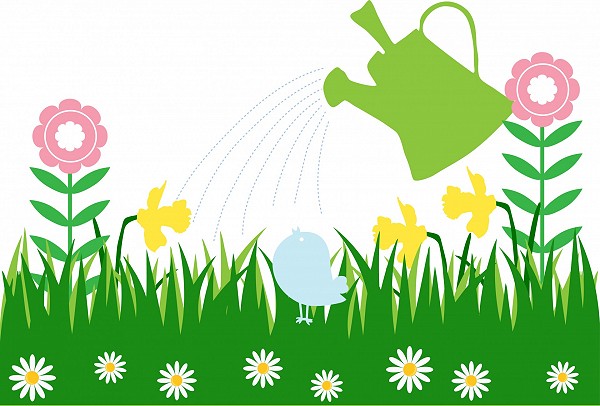
Sensory Play at Home
Encourage your child to explore household items using all of their senses - look, listen, touch, smell, taste.
These could be smelling and tasting food, smelling herbs and plants, banging pans to a rhythm, listening to wind chimes, feeling different fabrics, moving to different music…
There are many household activities that children can join in with too, helping you (!) at the same time as developing their senses and practising using their fine and gross motor skills - wiping the table, loading the washing machine, washing the pots, hoovering, sweeping, putting shopping away, baking… the list is endless!

TACPAC - Communication through touch and music - draws together touch and music to create a structured half hour of sensory communication between two people. They are offering their ‘Set 5’ resource pack free of charge for 3 months to use at home. You can access this on the Set 5 page by entering the code 8Q7A3TXS at the checkout. It’s also worth watching their short help videos designed especially for parents to make the best use of the recsource.
The Northern Ireland Curriculum site for children with PMLD offers a number of sensory ideas around 12 different themes and includes powerpoints too. It aims to help you to develop and embedd awareness through a wide range of sensory stimulation, music, song, poetry, environmental and ICT experiences.
Power of Play
The amazing team of play experts at Great Ormond Street Hospital have assembled a treasure trove of games and activities, to help children across the UK and beyond cope with today’s challenges and support your family through this challenging time. Some have been created by the Play team themselves and some were created by other brilliant sources, but all of them use minimal resources and are recommended by the team.
Sensory Spectacle aims to create greater awareness and understanding of auditory, visual, tactile, smell, taste, proprioceptive and vestibular difficulties. They have developed a 4 week activity download available on their website that families may find useful.
The Little Bins for Little Hands website has lots of suggestions for simple science activities involving things such as LEGO and slime - big favourites with many of our children!
A mum has created a website - Learning Through Exploring and Play - which has lots of ideas about things to make and do with young children, have a look at some of the nice suggestions, it might give you some inspiration!
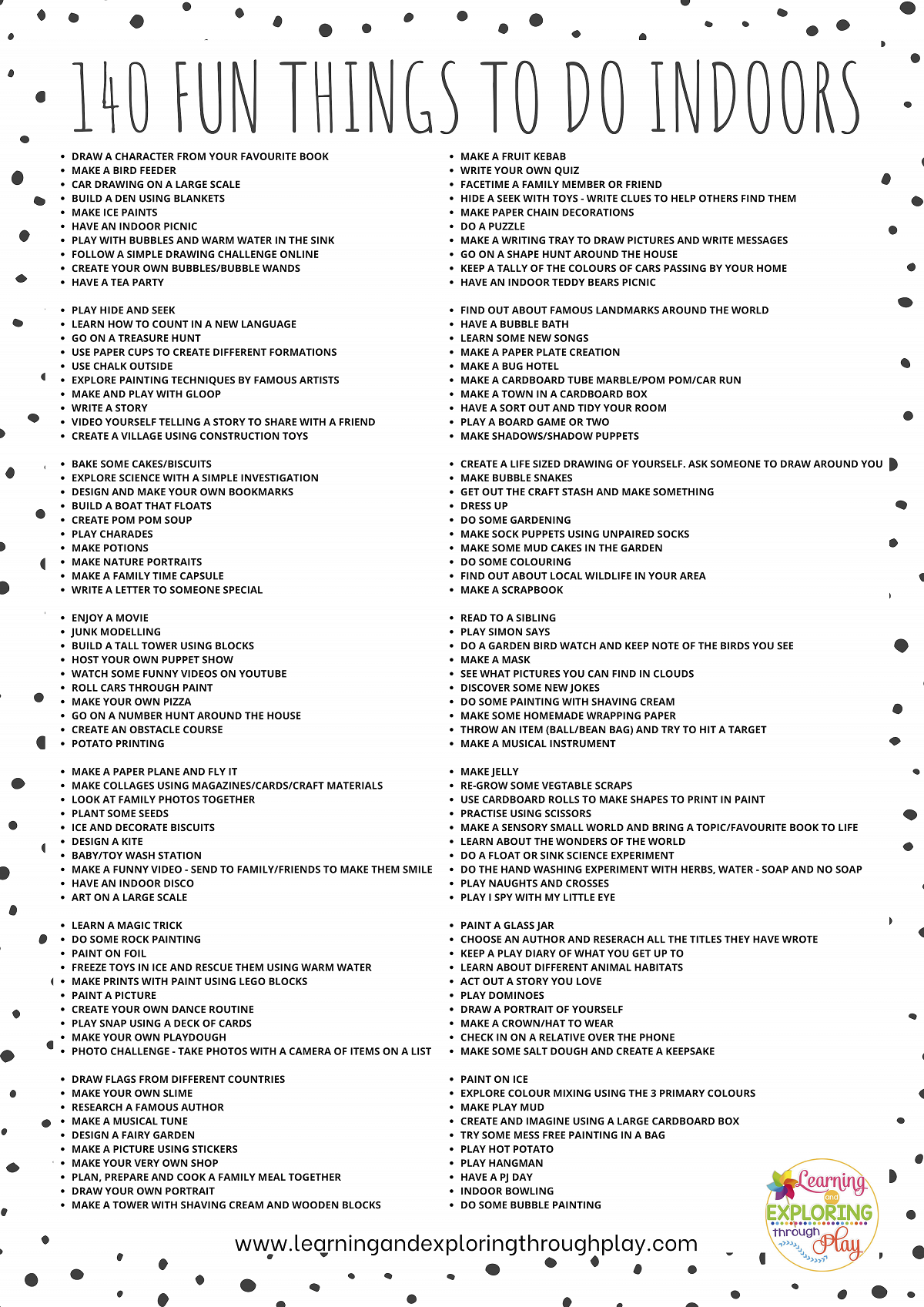
Wellbeing - stay healthy in body and mind
There are lots of things you can do at home to try to stay healthy physically and emotionally.
If you have access to Facebook, Bumble Bee Physio London are doing live physio sessions for children who are wheelchair users at 10am on their Facebook page. They do a variety of live physio sessions for children with varying needs of physical disabilities, ranging from P.E sessions for pupils with mild physical needs to floor therapy exercises for children that require full physical support. The sessions are made fun and often themed to stories, craft activities or popular TV characters e.g. Peppa Pig, Bear hunt, super heroes. It is a useful resources for some of our parents/carers with children that require exercise at home.
Childline have developed a section with videos, games, beathing exercises and calming activities to help children who are worried about anything.
This website has 15 Fun Fitness activities that you can try out at home!
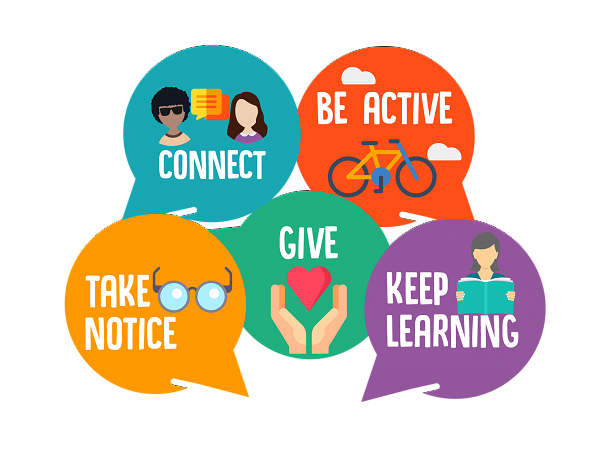
The Anna Freud network has created a resource - Supporting the most vulnerable children and young people - A guide to supporting vulnerable pupils and students during periods of disruption, which advises on three practical steps to help the most vulnerable children and young people during the Coronavirus pandemic.
Action For Happiness is a website containing lots of wellbeing resources, including a nice monthly calendar for families to download packed with actions you can take to help create a happier and kinder world. They are a movement of people committed to building a happier and more caring society, who want to see a fundamentally different way of life - where people care less about what they can get just for themselves and more about the happiness of others.
The Happy Space Digital Wellbeing Guidebook contains lots of nice ideas for paretns and young people about activities to support mentl health and wellbeing!
Teacher Laura has made a fun video of a keep fit game that the whole family can play - it involves some number work too!
Keep Fit with Laura
Hearing Aid Care
If your child wears a hearing aid it is important that you know how to help them to look after it - here are a few handy hints to support you with this important task!
How to checking a hearing aid to make sure that it is working
A hearing aid needs to be checked twice a day.
- First time in the morning before it is put in.
- Second check is after lunch, to make sure it is still working.
Cup the hearing aid in your hand and listen for ‘whistling’ - this tells you that the battery is working. ‘No whistling’ may mean a number of things:
- the battery is dead so it may need to be replaced.
- there is moisture inside the hearing aid so it is to be kept in a dehumidifier overnight or above a warm radiator (not directly on the radiator).
- there is moisture in the tube - if so, try to get teh moisture out by using a puffer or blowing it out, without your lips touching the tube.
- the tube is blocked with wax - in this case it needs removing or a new tube attaching.


How to clean the earmould and tube of a hearing aid
It is important to clean a hearing aid to ensuer that it continues to work and helps your child to hear better.
- Remove the earmould and the tube from the hearing aid before you clean it.
- Place the tube and earmould in a bowl of lukewarm water with a drop of soap (check it doesn’t cause any allergy) and wash.
- Rinse thoroughly with lukewarm water.
- If ear wax is stuck in the tube, soften by placing it in a bowl of hot soapy water and then use puffer to force it out or blow out without the lips touching the tube.
- Use a puffer to remove moisture trapped inside or blow out without the lips touching the tube.
- Be sure to thoroughly dry the earmould and the tube before reconnecting it to the hearing aid.
If you require any support with your child’s hearing aid, you can speak to the class teacher, or contact Hearing Impaired Advisory Teacher with the SEND Support Service, Shaheen Buta, or speak to the Audiology department who have issued the hearing aid. They can also supply you with more batteries as required.
Coronavirus and Keeping Clean
Since March 2020 the whole world is experiencing a pandemic due to the COVID-19 virus.
This is a very difficult time for everyone and children may struggle to understand what is happening.
This lovely online story - Everybody Worries - has been written by Jon Burgerman and uses language and visuals to reassure children who may be worried about what is happening in the world on lockdown.
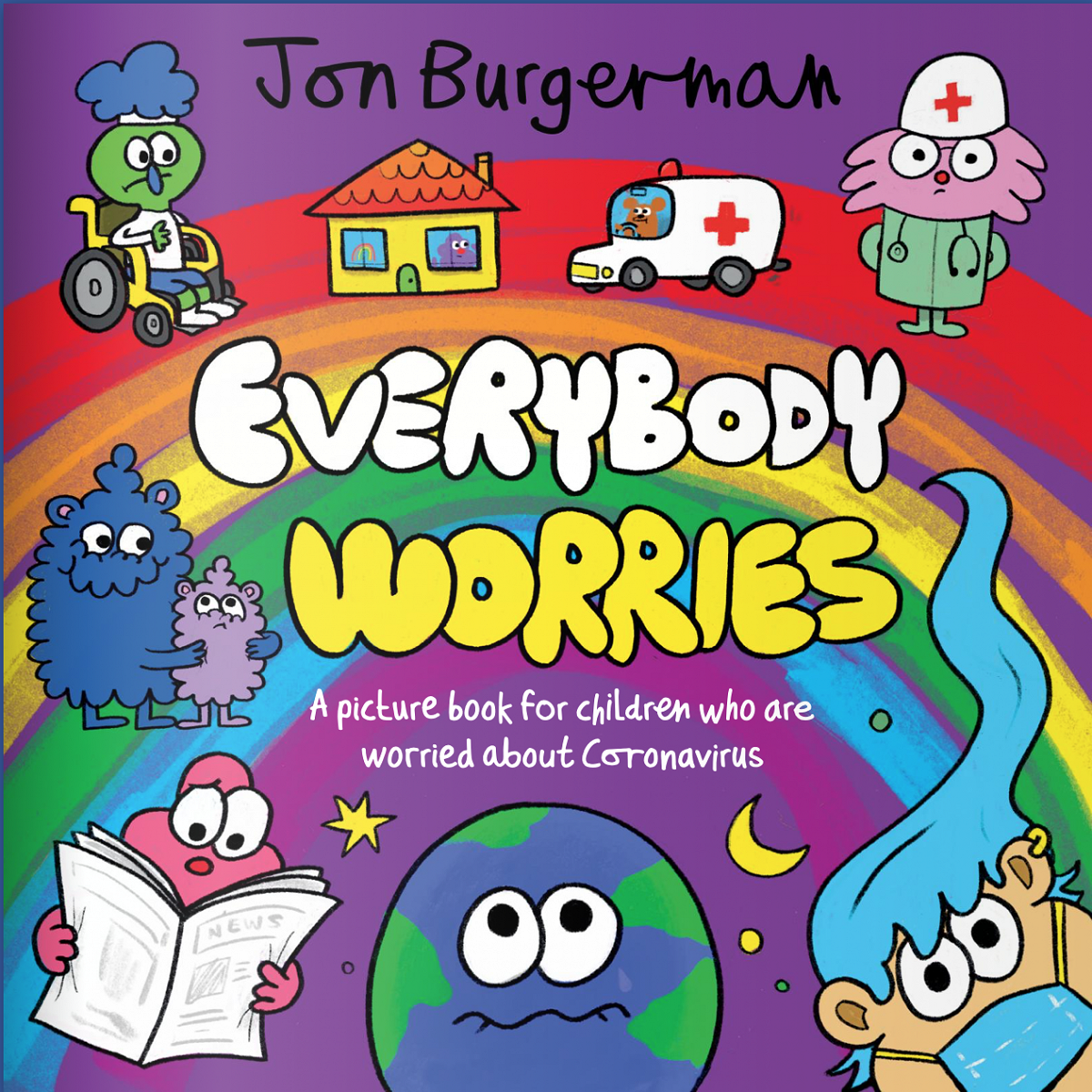
These video presentations give you a means of showing your child what is happening and some visual aids for you to talk through to help explain Coronavirus, how to keep clean and what happens when a school is closed.
CORONAVIRUS EXPLANATION - A VIDEO TO HELP CHILDREN UNDERSTAND ABOUT CORONAVIRUS
WASHING HANDS - A VIDEO TO SUPPORT TEACHING ABOUT HAND WASHING
WHY IS MY SCHOOL CLOSED?
The National Autistic Society has produced some information for families about how to cope during the pandemic - Coronavirus Top Tips for Families
